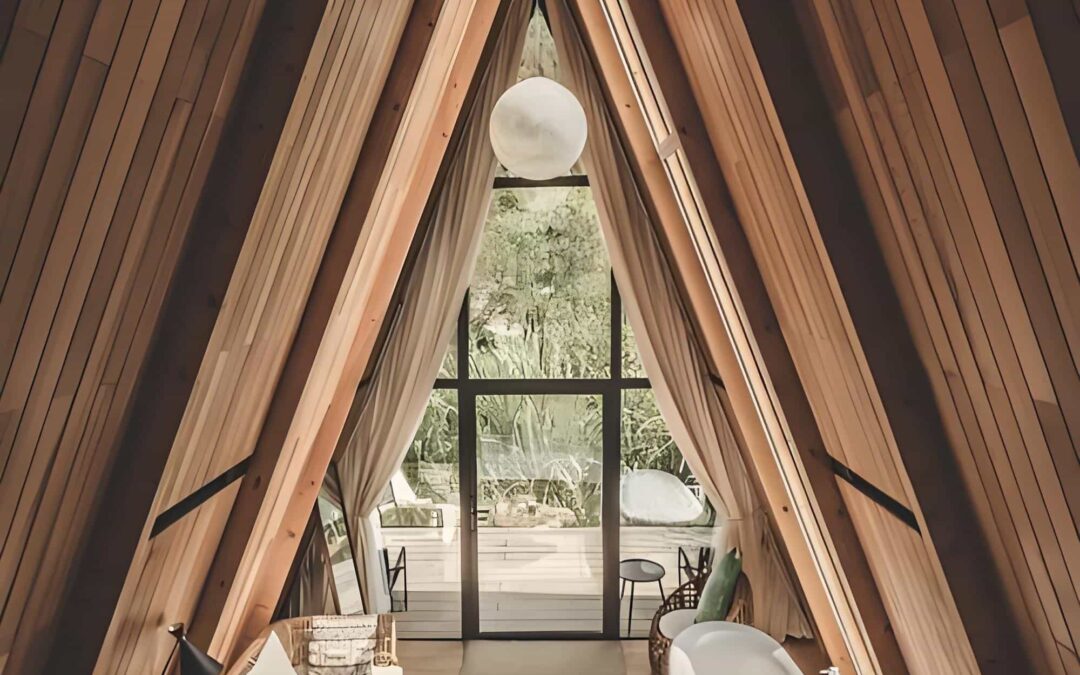Why Modular Home Builders are Important

Are you curious about modular home builders and the incredible homes they create? If so, you’re in the right place. Modular homes, also known as prefabricated homes, offer a fantastic blend of innovative designs, energy efficiency, and affordability. These homes are built in sections within a factory setting and then assembled on-site, ensuring high quality and versatility.
Here’s a quick overview of what makes modular homes popular:
- Innovative Designs: Customize your home with a wide range of designs and floor plans.
- Energy Efficiency: Enjoy sustainable living with eco-friendly materials and energy-saving technologies.
- Affordability: Get a high-quality home at a lower cost compared to traditional site-built homes.
I’m Shawn Shi, an expert in modular home construction with years of experience in sustainable and customized building solutions. My passion for creating luxurious yet eco-friendly living spaces has driven my career in this innovative field.

Learn more about modular home builder:
- affordable houses for sale near me
- sustainable prefab homes
What is a Modular Home?
A modular home is a type of prefabricated home built in sections—or modules—in a factory setting. These modules are then transported to the home site and assembled on a permanent foundation. Unlike manufactured homes, which follow a national building code and often come on wheels, modular homes adhere to the same local, state, and regional building codes as traditional site-built homes.
Factory-Built Precision
Adhering to Local Building Codes
One of the standout features of modular homes is their compliance with local building codes. This means they meet the same standards as traditional homes, ensuring safety, reliability, and long-term value. By adhering to these codes, modular homes can be customized to fit the specific requirements of any location, whether it’s a busy city or a quiet rural area.
Permanent Foundation
Modular homes are assembled on a permanent foundation, making them a stable and long-lasting housing option. This foundation can be a traditional poured concrete base, a crawl space, or even a basement. The permanence of the foundation adds to the home’s stability and resale value, differentiating it from temporary or mobile structures.
Customization Options
One of the most appealing aspects of modular homes is the ability to customize. Homebuyers can choose from a variety of floor plans, interior finishes, and exterior features. Whether you desire a modern kitchen, a spacious living area, or energy-efficient systems, modular homes offer extensive flexibility. Companies in the industry provide options ranging from semi-custom to fully customizable plans, allowing you to create a home that truly reflects your style and needs.
A Quick Recap
- Factory-Built: Ensures high quality and minimizes weather-related delays.
- Local Building Codes: Meets the same standards as traditional homes.
- Permanent Foundation: Adds stability and long-term value.
- Customization: Offers extensive flexibility in design and features.
Understanding these key aspects makes it clear why modular homes are a popular choice for those seeking a blend of quality, affordability, and customization.
Next, let’s explore the benefits of modular home construction.
Benefits of Modular Home Construction
Choosing a modular home builder offers many advantages, from quality control to sustainability. Here’s a closer look at why modular homes are a smart choice.
Quality Control
Building modules in a factory means strict quality checks at every stage. This ensures each section of your home meets high standards before it even leaves the factory.
Speed
Modular homes can be completed much faster than traditional homes. Why? Because the site work and home construction happen at the same time. This parallel process can cut the overall build time by up to 50%. Imagine moving into your new home months ahead of schedule!
Cost-Effectiveness
Modular homes are often more cost-effective than traditional homes. The controlled factory environment reduces labor costs and material waste. Additionally, bulk purchasing of materials lowers expenses. However, the final price depends on your chosen features and location.
Sustainability
Modular construction is eco-friendly. Building in a factory reduces waste, and many modular homes use energy-efficient materials and practices. This makes them both environmentally friendly and durable.
Reduced Waste
Factory construction means less waste compared to on-site builds. Leftover materials are reused in other projects, and recycling is common practice. This not only saves money but also helps the environment.
Energy-Efficient
Modular homes often come with energy-efficient systems. Features like ultra-high-performance windows, advanced fresh air systems, and ENERGY STAR® appliances reduce utility bills and create a healthier living environment. For example, some homes replace the air inside three times a day, removing dust and pollen.

A Quick Recap
- Quality Control: Rigorous checks ensure high standards.
- Speed: Faster build times mean earlier move-in dates.
- Cost-Effectiveness: Lower labor and material costs.
- Sustainability: Eco-friendly materials and reduced waste.
- Reduced Waste: Efficient use of materials.
- Energy-Efficient: Lower utility bills and healthier living spaces.
These benefits make modular homes a compelling choice for modern homebuyers.
Next, let’s dive into how Miramar Tents is leading the way in modular home construction.
Miramar Tents: Leading the Way in Modular Home Construction
Innovative Designs
Miramar Tents excels in cutting-edge architecture and modern aesthetics. Their modular homes feature sleek designs and functional layouts that cater to contemporary living. This innovative approach ensures that each home is not just a place to live, but a statement of style.
Energy Efficiency
Energy efficiency is at the core of Miramar Tents’ construction philosophy. They use eco-friendly materials and energy-saving technologies to create homes that are both sustainable and cost-effective. For example, their homes often include ultra-high-performance windows and ENERGY STAR® appliances, significantly reducing utility bills.
Customization Options
One of the standout features of Miramar Tents is their flexibility in custom designs. They offer flexible floor plans and personalized features, allowing homeowners to tailor their living spaces to their unique needs. Whether you want an open-concept kitchen or a cozy reading nook, Miramar Tents can make it happen.
Quality Control
Miramar Tents adheres to stringent manufacturing standards to ensure the highest quality. They use durable materials and reliable construction methods, making their homes built to last. Each module undergoes rigorous quality checks before leaving the factory, ensuring your home is perfect from the ground up.
Affordability
Despite their high quality, Miramar Tents offers cost-effective solutions. Their competitive pricing ensures you get the best value for your money. Building in a controlled factory environment reduces labor costs and material waste, making modular homes a more affordable option compared to traditional builds.

Next, let’s explore how to choose the right modular home builder for your needs.
Choosing the right modular home builder is crucial for making your dream home a reality. Here are some key factors to consider:
Research
Start by doing thorough research. Look into different builders and their reputations. Check their websites, read articles, and look for any awards or recognitions they have received.
Reviews
Customer reviews can provide valuable insights. Look for reviews on third-party websites and forums. Pay attention to both positive and negative feedback to get a balanced view.
Customization Options
Not all builders offer the same level of customization. If you have specific design preferences, ensure the builder can accommodate them. Ask about flexible floor plans and the ability to personalize features like kitchens, bathrooms, and living spaces.
Budget
Budget is a major consideration. Compare costs among different builders, but the cheapest option isn’t always the best. Look for a builder who offers cost-effective solutions without compromising on quality.
Location
Location matters. Some builders may have restrictions on where they can deliver and assemble homes. Ensure the builder you choose can work within your desired area.
Design Preferences
Different builders have different design styles. Look at their portfolios to see if their design aesthetics match your vision. Whether you prefer modern, traditional, or something in between, make sure the builder can deliver.
By considering these factors, you can find a modular home builder who will meet your needs and help you create a home you’ll love.
Cost of Modular Homes
When it comes to building a home, cost is often a top concern. Let’s break down the cost differences between traditional homes and modular homes, and how regional factors can influence these expenses.
Cost Comparison
Modular homes are generally more cost-effective than traditional homes. One of the main reasons is the controlled factory environment in which they are built. This reduces labor costs and construction delays, which are common in traditional home building.
| Construction Type | Cost per Square Foot |
|---|---|
| Modular Home | $80 – $160 |
| Traditional Home | $100 – $200 |
As you can see, modular homes can offer significant savings. For example, if you’re building a 2,000-square-foot home, choosing modular could save you anywhere from $40,000 to $80,000.
Price Per Square Foot
The cost per square foot for modular homes typically ranges from $80 to $160. This range depends on the complexity of the design and the materials used. In contrast, traditional homes usually cost between $100 and $200 per square foot.
Regional Differences
Regional factors also play a role in the cost of modular homes. Prices can vary based on local labor rates, material availability, and transportation costs.
For instance, in areas like California, transportation regulations can add to the cost. A trailer over 15 feet wide may need a police escort, increasing expenses. On the other hand, in states with fewer transportation restrictions, these additional costs might be lower.
Additional Costs
While modular homes are generally cheaper, don’t forget to account for additional expenses like land, site preparation, and utility hookups. These can vary widely depending on your location and the complexity of your home design.
In conclusion, modular homes offer a cost-effective alternative to traditional homes, with prices per square foot significantly lower. However, regional differences and additional costs should be considered to get a complete picture of your investment.
Frequently Asked Questions about Modular Home Builders
Is it cheaper to build or buy modular?
Building a modular home is often cheaper than constructing a traditional home. This is due to several factors:
- Labor Costs: Building modules in a factory setting reduces labor costs. Workers can build homes faster and more efficiently than on-site construction.
- Construction Time: Modular homes can be completed in 6 to 10 weeks, compared to 4 to 6 months for traditional homes. This faster timeline also reduces costs associated with delays.
- Cost Comparison: As mentioned earlier, the cost per square foot for modular homes ranges from $80 to $160, while traditional homes cost between $100 to $200 per square foot.
How much does a modular home cost in different states?
The cost of a modular home can vary significantly depending on the state and region. Factors that influence these costs include:
- Regional Costs: Local labor rates, availability of materials, and transportation expenses can affect the overall cost. For example, in states like California, additional transportation regulations can increase costs.
- Price Per Square Foot: While the average cost per square foot for a modular home is $80 to $160, this can fluctuate based on regional factors. In some areas, costs may be on the higher end due to increased demand or stricter building codes.
- Land and Site Improvements: Don’t forget to account for land costs, site preparation, and utility hookups, which can vary widely by location. These additional expenses are crucial for a complete budget.
What are the differences between modular and manufactured homes?
Understanding the differences between modular and manufactured homes is essential:
- Building Codes: Modular homes adhere to the same local, state, and regional building codes as traditional site-built homes. Manufactured homes, however, follow a national HUD code.
- Foundation Options: Modular homes are placed on permanent foundations, making them similar to traditional homes. Manufactured homes often sit on temporary foundations and can be moved.
- Design Complexity: Modular homes offer extensive design flexibility and customization options, from floor plans to interior finishes. Manufactured homes typically have limited customization.
- Flexibility: Modular homes can be easily expanded or modified in the future, while manufactured homes have more restrictions due to their construction and foundation types.
For more detailed information on modular homes and their benefits, check out the Modular Home Builders Association.
Next, we’ll dive into the essential steps for choosing the right modular home builder.
Conclusion
At Miramar Tents, we’re passionate about revolutionizing the modular home industry with our innovative prefabricated solutions. Our focus is on delivering high-quality, sustainable, and custom-designed modular homes that meet the needs of modern living.
Innovative Prefabricated Solutions
We leverage cutting-edge technology to create modular homes that are not only functional but also aesthetically pleasing. Our designs incorporate the latest architectural trends and are custom to suit diverse lifestyles. Whether you’re looking for a compact home or a spacious family residence, our modular homes offer versatile and stylish options.
High Quality
Quality is at the core of everything we do. Our homes are built in controlled factory environments, ensuring stringent quality control and superior craftsmanship. This method reduces construction errors and improves the durability of your home, making it a reliable investment for the future.
Sustainability
Sustainability is a key priority for us. We use eco-friendly materials and energy-saving technologies to minimize the environmental impact of our homes. Our modular homes are designed to be energy-efficient, reducing utility bills and promoting a greener lifestyle. Choosing a Miramar Tents modular home means opting for a sustainable and environmentally responsible living solution.
Custom Solutions
We understand that every homeowner has unique needs and preferences. That’s why we offer extensive customization options. From flexible floor plans to personalized interior features, our modular homes can be custom to reflect your individual style and requirements. Our goal is to help you create a home that truly feels like yours.
In conclusion, Miramar Tents is committed to providing innovative, high-quality, and sustainable modular homes that offer exceptional value. Our custom solutions ensure that you get a home that meets your specific needs and improves your quality of life.
Ready to explore our range of modular homes? Visit our products page to learn more and start designing your dream home today!
Check out our featured post: Choosing the Perfect Glamorous Tent Manufacturer: Tips and Benefits for Your Dream Event



